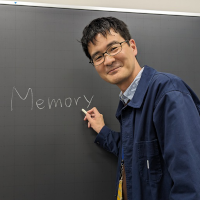Bochum-Grenoble-Taipei Memory Colloquium
2024


Andy Hamilton
(Durham University)
Memory-reports and dream-narratives: Are dreams events in sleep?
12:15-13:45 Central European Summer Time (UTC+02:00)/18:15-19:45 Taiwan Standard Time (UTC+08:00), 16 April 2024
Abstract: Dreaming is a strangely neglected topic in philosophy, despite the use to which Cartesian sceptics have put it. This paper compares dream-narratives with memory-reports, arguing against the Analytic and popular consensus that the former are not memory-reports – there are vital differences as well as similarities. As Wittgenstein recognised, dream-narratives have authority – memory-reports, in contrast, are merely reliable. As in his account of pain, Wittgenstein rejects both Cartesianism and behaviourism: "Does this mean that it is nonsense ever to raise the question whether dreams really take place during sleep, or are a memory phenomenon of the awakened? It will turn on the use of the question." In this discussion, I am indebted to the work of Roger Squires (1940-2021).

Ali Boyle
(London School of Economics)
The evolution of episodic memory: what are the rules of the game?
12:15-13:45 Central European Summer Time (UTC+02:00)/18:15-19:45 Taiwan Standard Time (UTC+08:00), 30 April 2024
Abstract: If episodic memory is an adaptation, what is its evolutionary function? A number of apparently conflicting answers have recently been offered to this question. It is not clear, however, how to adjudicate between these accounts: what should an adequate account of episodic memory's function do? Drawing on critical responses to existing accounts, I consider three prima-facie plausible desiderata on accounts of episodic memory's function. First, functional accounts of episodic memory should specify a selection-relevant benefit that outweighs the costs of episodic memory. Second, functional accounts should explain central, characteristic features of episodic memory, such as autonoetic consciousness. Third, functional accounts should explain the existence of episodic memory and not related but distinct phenomena. Whilst these desiderata all appear reasonable, I argue that they are difficult to justify once we grant the possibility that episodic memory may have developed gradually over a long period of evolutionary time – a possibility we should acknowledge, particularly given the emerging picture of animals' memory capacities. In light of this argument, I attempt to motivate some alternative desiderata for accounts of episodic memory's evolution.

Shin Sakuragi
(Shibaura Institute of Technology)
Memory belief, evidence, and disposition
12:15-13:45 Central European Summer Time (UTC+02:00)/18:15-19:45 Taiwan Standard Time (UTC+08:00), 14 May 2024
Abstract: Many of our beliefs were originally acquired based on some evidential grounds, while we often do not remember their original grounds. In this talk, I examine how memory beliefs are justified after their original grounds were lost. In my view, acquiring a new belief and retaining it in memory require maintaining a variety of relevant dispositions, and acceptable theories of justification for memory beliefs have to take the epistemic roles of relevant dispositions into account. In light of the epistemic roles of relevant dispositions, I claim that retaining a once well-grounded belief without having sufficient grounds for it is rather exceptional.

Katsunori Miyahara
(Hokkaido University)
Habit and autobiographical remembering
12:15-13:45 Central European Summer Time (UTC+02:00)/18:15-19:45 Taiwan Standard Time (UTC+08:00), 04 June 2024
Abstract: Habits are often seen as automatic, non-reflective, routine actions. Autobiographical memories, on the other hand, involve conscious reflection on our personal past. Yet, this talk argues that habits can significantly inform the act of autobiographical remembering. Drawing on Merleau-Ponty’s treatment of habits as “the power we have of dilating our being in the world” (2012: 145), I will indicate three ways in which habits can contribute to autobiographical remembering. First, habits themselves can become the focus of our autobiographical remembering. Second, habits can shape our affective perspective on a situation, which in turn triggers and guides how we remember our past. Third, the act of autobiographical remembering itself can become a habit and further inform our practice of remembering our past.

Julia Langkau
(Université de Genève)
Imagining what we will remember?
12:15-13:45 Central European Summer Time (UTC+02:00)/18:15-19:45 Taiwan Standard Time (UTC+08:00), 18 June 2024
Abstract: I argue that when we aim to imagine complex future experiences, for instance in order to take a decision, we likely imagine something closer to possible future memories, because of the way complex experiences are represented in memory. While memories can stay with us for much longer than the experiences themselves, imagining something like possible future memories instead of the experiences themselves has epistemic disadvantages, cannot account for important ways in which experiences have an impact on us, and seems somehow unauthentic. Our aim should be to imagine future experiences. However, for our imagining to be reliable, we would have to live and structure our experiences with the reliability of our memories in mind. This, again, may be disadvantageous to the experiences themselves.

Cameron Buckner
(University of Houston)
Using empiricist theories of memory to understand achievements in deep learning
12:15-13:45 Central European Summer Time (UTC+02:00)/18:15-19:45 Taiwan Standard Time (UTC+08:00), 09 July 2024
Abstract: In working out the details of Aristotle's account of abstraction, Ibn Sina developed a sophisticated theory of the "inner senses", involving mental faculties like attention, imagination, estimation, and memory. This theory involved a hierarchical cascade of abstraction through various stages and bears a significant degree of similarity to the computational theories of hierarchical abstraction which have been popular in the last four decades of cognitive psychology and which provided inspiration for deep learning neural networks. In this talk, I argue that there is benefit in returning to such empiricist accounts of cognitive architecture when evaluating recent machine learning achievements, as it can not only illuminate and contextualize these breakthroughs, but also contains considerable resources for rebutting generic criticisms against deep-neural-network-based artificial intelligence.

Daniel D. Hutto
(University of Wollongong)
Acts of remembering: From a radically enactivist point of view
12:15-13:45 Central European Summer Time (UTC+02:00)/18:15-19:45 Taiwan Standard Time (UTC+08:00), 16 July 2024
Abstract: Cognitivists and radical enactivists understand acts of remembering in fundamentally different ways. It is a hallmark of cognitivism to seek to identify some independent component that puts the memory – what’s remembered – into acts of remembering. Such a component is variably characterised as: a stored memory, a stored content, or stored information. Accordingly, and on this basis, cognitivists seek to distinguish memories from acts of remembering. This presentation raises doubts about the very idea that we can make sense of the real, independent existence of stored memory contents and stored memory information and thereby motivates adoption of a radically enactivist approach that conceives of memory as nothing short of various kinds of acts of remembering.